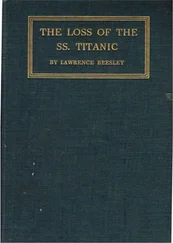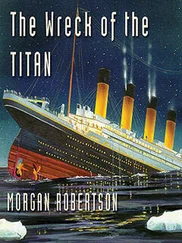Theodore Dreiser - The Titan
Здесь есть возможность читать онлайн «Theodore Dreiser - The Titan» весь текст электронной книги совершенно бесплатно (целиком полную версию без сокращений). В некоторых случаях можно слушать аудио, скачать через торрент в формате fb2 и присутствует краткое содержание. Жанр: Классическая проза, на английском языке. Описание произведения, (предисловие) а так же отзывы посетителей доступны на портале библиотеки ЛибКат.
- Название:The Titan
- Автор:
- Жанр:
- Год:неизвестен
- ISBN:нет данных
- Рейтинг книги:5 / 5. Голосов: 1
-
Избранное:Добавить в избранное
- Отзывы:
-
Ваша оценка:
- 100
- 1
- 2
- 3
- 4
- 5
The Titan: краткое содержание, описание и аннотация
Предлагаем к чтению аннотацию, описание, краткое содержание или предисловие (зависит от того, что написал сам автор книги «The Titan»). Если вы не нашли необходимую информацию о книге — напишите в комментариях, мы постараемся отыскать её.
The Titan — читать онлайн бесплатно полную книгу (весь текст) целиком
Ниже представлен текст книги, разбитый по страницам. Система сохранения места последней прочитанной страницы, позволяет с удобством читать онлайн бесплатно книгу «The Titan», без необходимости каждый раз заново искать на чём Вы остановились. Поставьте закладку, и сможете в любой момент перейти на страницу, на которой закончили чтение.
Интервал:
Закладка:
Chapter LVIII.
A Marauder Upon the Commonwealth
The spring and summer months of 1897 and the late fall of 1898 witnessed the final closing battle between Frank Algernon Cowperwood and the forces inimical to him in so far as the city of Chicago, the state of Illinois, and indeed the United States of America, were concerned. When in 1896 a new governor and a new group of state representatives were installed Cowperwood decided that it would be advisable to continue the struggle at once. By the time this new legislature should convene for its labors a year would have passed since Governor Swanson had vetoed the original public-service-commission bill. By that time public sentiment as aroused by the newspapers would have had time to cool. Already through various favorable financial interests—particularly Haeckelheimer, Gotloeb & Co. and all the subsurface forces they represented—he had attempted to influence the incoming governor, and had in part succeeded.
The new governor in this instance—one Corporal A. E. Archer—or ex-Congressman Archer, as he was sometimes called—was, unlike Swanson, a curious mixture of the commonplace and the ideal—one of those shiftily loyal and loyally shifty who make their upward way by devious, if not too reprehensible methods. He was a little man, stocky, brown-haired, brown-eyed, vigorous, witty, with the ordinary politician’s estimate of public morality—namely, that there is no such thing. A drummer-boy at fourteen in the War of the Rebellion, a private at sixteen and eighteen, he had subsequently been breveted for conspicuous military service. At this later time he was head of the Grand Army of the Republic, and conspicuous in various stirring eleemosynary efforts on behalf of the old soldiers, their widows and orphans. A fine American, flag-waving, tobacco-chewing, foul-swearing little man was this—and one with noteworthy political ambitions. Other Grand Army men had been conspicuous in the lists for Presidential nominations. Why not he? An excellent orator in a high falsetto way, and popular because of good-fellowship, presence, force, he was by nature materially and commercially minded—therefore without basic appeal to the higher ranks of intelligence. In seeking the nomination for governorship he had made the usual overtures and had in turn been sounded by Haeckelheimer, Gotloeb, and various other corporate interests who were in league with Cowperwood as to his attitude in regard to a proposed public-service commission. At first he had refused to commit himself. Later, finding that the C. W. & I. and the Chicago & Pacific (very powerful railroads both) were interested, and that other candidates were running him a tight chase in the gubernatorial contest, he succumbed in a measure, declaring privately that in case the legislature proved to be strongly in favor of the idea and the newspapers not too crushingly opposed he might be willing to stand as its advocate. Other candidates expressed similar views, but Corporal Archer proved to have the greater following, and was eventually nominated and comfortably elected.
Shortly after the new legislature had convened, it so chanced that a certain A. S. Rotherhite, publisher of the South Chicago Journal, was one day accidentally sitting as a visitor in the seat of a state representative by the name of Clarence Mulligan. While so occupied Rotherhite was familiarly slapped on the back by a certain Senator Ladrigo, of Menard, and was invited to come out into the rotunda, where, posing as Representative Mulligan, he was introduced by Senator Ladrigo to a stranger by the name of Gerard. The latter, with but few preliminary remarks, began as follows:
“Mr. Mulligan, I want to fix it with you in regard to this Southack bill which is soon to come up in the house. We have seventy votes, but we want ninety. The fact that the bill has gone to a second reading in the senate shows our strength. I am authorized to come to terms with you this morning if you would like. Your vote is worth two thousand dollars to you the moment the bill is signed.”
Mr. Rotherhite, who happened to be a newly recruited member of the Opposition press, proved very canny in this situation.
“Excuse me,” he stammered, “I did not understand your name?”
“Gerard. G-er-ard. Henry A. Gerard,” replied this other.
“Thank you. I will think it over,” was the response of the presumed Representative Mulligan.
Strange to state, at this very instant the authentic Mulligan actually appeared—heralded aloud by several of his colleagues who happened to be lingering near by in the lobby. Whereupon the anomalous Mr. Gerard and the crafty Senator Ladrigo discreetly withdrew. Needless to say that Mr. Rotherhite hurried at once to the forces of righteousness. The press should spread this little story broadcast. It was a very meaty incident; and it brought the whole matter once more into the fatal, poisonous field of press discussion.
At once the Chicago papers flew to arms. The cry was raised that the same old sinister Cowperwoodian forces were at work. The members of the senate and the house were solemnly warned. The sterling attitude of ex-Governor Swanson was held up as an example to the present Governor Archer. “The whole idea,” observed an editorial in Truman Leslie MacDonald’s Inquirer , “smacks of chicane, political subtlety, and political jugglery. Well do the citizens of Chicago and the people of Illinois know who and what particular organization would prove the true beneficiaries. We do not want a public-service commission at the behest of a private street-railway corporation. Are the tentacles of Frank A. Cowperwood to envelop this legislature as they did the last?”
This broadside, coming in conjunction with various hostile rumblings in other papers, aroused Cowperwood to emphatic language.
“They can all go to the devil,” he said to Addison, one day at lunch. “I have a right to an extension of my franchises for fifty years, and I am going to get it. Look at New York and Philadelphia. Why, the Eastern houses laugh. They don’t understand such a situation. It’s all the inside work of this Hand-Schryhart crowd. I know what they’re doing and who’s pulling the strings. The newspapers yap-yap every time they give an order. Hyssop waltzes every time Arneel moves. Little MacDonald is a stool-pigeon for Hand. It’s got down so low now that it’s anything to beat Cowperwood. Well, they won’t beat me. I’ll find a way out. The legislature will pass a bill allowing for a fifty-year franchise, and the governor will sign it. I’ll see to that personally. I have at least eighteen thousand stockholders who want a decent run for their money, and I propose to give it to them. Aren’t other men getting rich? Aren’t other corporations earning ten and twelve per cent? Why shouldn’t I? Is Chicago any the worse? Don’t I employ twenty thousand men and pay them well? All this palaver about the rights of the people and the duty to the public—rats! Does Mr. Hand acknowledge any duty to the public where his special interests are concerned? Or Mr. Schryhart? Or Mr. Arneel? The newspapers be damned! I know my rights. An honest legislature will give me a decent franchise to save me from the local political sharks.”
By this time, however, the newspapers had become as subtle and powerful as the politicians themselves. Under the great dome of the capitol at Springfield, in the halls and conference chambers of the senate and house, in the hotels, and in the rural districts wherever any least information was to be gathered, were their representatives—to see, to listen, to pry. Out of this contest they were gaining prestige and cash. By them were the reform aldermen persuaded to call mass-meetings in their respective districts. Property-owners were urged to organize; a committee of one hundred prominent citizens led by Hand and Schryhart was formed. It was not long before the halls, chambers, and committee-rooms of the capitol at Springfield and the corridors of the one principal hotel were being tramped over almost daily by rampant delegations of ministers, reform aldermen, and civil committeemen, who arrived speechifying, threatening, and haranguing, and departed, only to make room for another relay.
Читать дальшеИнтервал:
Закладка:
Похожие книги на «The Titan»
Представляем Вашему вниманию похожие книги на «The Titan» списком для выбора. Мы отобрали схожую по названию и смыслу литературу в надежде предоставить читателям больше вариантов отыскать новые, интересные, ещё непрочитанные произведения.
Обсуждение, отзывы о книге «The Titan» и просто собственные мнения читателей. Оставьте ваши комментарии, напишите, что Вы думаете о произведении, его смысле или главных героях. Укажите что конкретно понравилось, а что нет, и почему Вы так считаете.










